#but he doesn’t CARE; the whole entire movie we watch miles be a secondary character in his whole life.
Text
What everyone should understand from spider verse is that Miguel is right about Spider-Man, but he’s completely wrong about Miles.
#HES A KID. and it’s not an easy title to carry. it’s not a saving grace.#the whole point of miles is that he’s a good kid; he’s bleeding sunshine and exhausted brightness#he wants to be a good son. a good friend. a good hero. a good person.#miles’ spark is being a good person.#and the tragedy is that miles is all those things.#miles is a good kid. and that didn’t save him.#but he doesn’t CARE; the whole entire movie we watch miles be a secondary character in his whole life.#the difference between miles and Miguel is that miles sacrifices himself and Miguel sacrifices others#AND ITS SOOOOOO#atsv#across the spiderverse#miles morales#miguel o'hara#text#text post#spiderverse
137 notes
·
View notes
Text
Nachtwacht Sorting
The past... eight months or so, I’ve spent quite a few trips to and fro work amusing myself by figuring out a Sorting for the Nachtwacht characters. Some were easy, some took most of those eight months. And since I’ve missed writing meta, I’m now sharing it with all three of you who care about this show.
A word on the Sorting Hat Chats sorting method
The method I’m using is the Sorting Hat Chats method: based on the Harry Potter houses, but quite a bit more developed.
This method gives people a primary and a secondary house. Your primary is your why, your reasons, what drives you to take certain actions. Your secondary is the how: how you go about reaching your goals, how you react to things.
This might not be the kind of sorting you’re used to from the Harry Potter books. No house is intrinsically good or bad, it’s all about how your traits manifest and how you react to things.
The full explanation is too long for this meta, but you can read it here (and I highly recommend doing so!). All definitions below are taken from that link.
With that said, let’s sort the Nachtwacht characters.
Tl;dr:
Wilko: Slytherin/Gryffindor
Vlad: Hufflepuff/Slytherin
Keelin: Ravenclaw/Ravenclaw
WILKO
Primary: Slytherin
Secondary: Gryffindor
Slytherin Primaries are fiercely loyal to the people they care for most. Slytherin is the place where “you’ll make your real friends”– they prioritize individual loyalties and find their moral core in protecting and caring for the people they are closest to.
Gryffindor Secondaries charge. They meet the world head-on and challenge it to do its worst. Gryffindor Secondaries are honest, brash, and bold in pursuit of things they care about. Known for their bravery, it is almost a moral matter to stay true to themselves in any situation that they’re in.
Of all the characters, Wilko was by far the easiest to sort. He is stubborn, he is brash, he charges straight at danger with no regard for his own safety. These are all the traits of a textbook Gryffindor secondary.
The Gryffindor primary would be exceptionally ill-suited to him, though. Lofty ideals are wasted on him. Doing the Right Thing is never as important as doing right by the people he cares about. And Wilko cares a whole lot; he is an open and guiltless Slytherin primary. Unlike Vlad, Wilko’s circle of people is limited: Vlad and Keelin and Vega, Sacha and Helena and Cooper, and the rest of the village as a distant third. These are the people he will prioritize.
Nowhere is his Slytherin primary clearer than in The Domovoi (2X4). His worst fear is losing the people he loves. It is a very Slytherin kind of fear and one that is bad enough to break him at the sight of Vlad and Keelin (supposedly) dead.
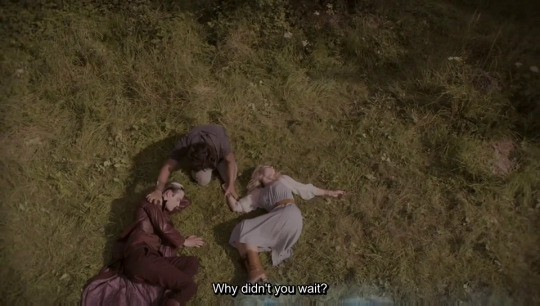
His primary also makes Wilko the person who cares the least about the Night Watch as a concept. He cares about Vlad and Keelin. If the Night Watch is somehow detrimental to them, all ideals about protecting the earth go straight out of the window; when Vlad is forced to leave the Night Watch, Wilko quits on the spot (The Gate of Souls). No doubt, no hesitation.
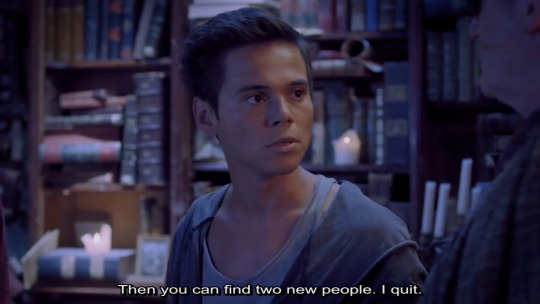
At his best, he is caring, willing to go the extra mile for the people he loves and ready to charge in so they don’t have to. At his worst, he is paranoid about any strangers and prone to taking decisions without informing or involving others.
‘Impulsive’ is a word that often gets bandied around with regards to Wilko. It’s how he expresses his (very loud) Secondary. Yet we are faced with an interesting paradox: Wilko may be impulsive, but his control over his werewolf side is exceptional. Whereas newly-turned werewolf Fran practically gets turned inside-out trying to resist the transformation once the moon rises, Wilko barely seems to notice it (2X10 The She-Wolf). Entire episodes take place during a full moon without Wilko ever mentioning it (4X4 The Protector). Only a super moon seems to have any effect on him (1X5 The Werewolf).
Wilko was born a werewolf, yet even among werewolves his control is remarkable (and remarked-upon by Vega in The She-Wolf). This lends an extra dimension to his impulsiveness: Wilko acts impulsive if and only if the situation presents a danger to the people he cares about. Giving in to his werewolf side would make him a danger to the people around him.
Tl;dr: Wilko is a loud and unapologetic Slytherin/Gryffindor: he prioritizes the people he cares about above all else and charges straight at danger in order to keep said danger from reaching them.
VLAD
Primary: Hufflepuff
Secondary: Slytherin
Hufflepuff Primaries value people–all people. They value community, they bond to groups (rather than solely individuals), and they make their decisions off of who is in the most need and who is the most vulnerable and who they can help. They value fairness because every person is a person and feel best when they give everyone that fair chance. Even directly wronged, a Hufflepuff will often give someone a second (or fifth) chance.
Slytherin Secondaries improvise. They are the most adaptive secondary, finding their strength in responding quickly to whatever a situation throws at them. They improvise differently than the Gryffindor Secondary, far more likely to try coming at situations from different angles than to try strong-arming them. They might describe themselves as having different “faces” for different people and different situations, dropping them and being just themselves only when they’re relaxing or feel safe.
Like Wilko, Vlad is motivated by people. Unlike Wilko, his loyalties are broader, extending to the community he lives in and to people in general. Vlad likes people. He’s willing to help those in need even if he doesn’t know them and/or they appear to be a threat initially (3x1 Het Monster). Befitting his Hufflepuff primary, he gives second chances and believes the best of people. This is equally likely to work out well for him as it is to backfire (4x10 Reika).
Less present in the actual show but very clear in the movie is his traditionalist and socially-conforming side. He has followed in his father’s footsteps as a member of the Night Watch, something that was long a goal for him (4X10 Reika). He is duty-bound and puts aside his own personal needs to keep the peace. Vlad, knowing he has to leave the Night Watch, argues within the framework of the rules the Council set up. He states his case, he tries to change their mind — but when it comes down to it, he professes that he has no choice. He has to obey. If the High Council says he needs to quit, he will quit (The Gate of Souls).
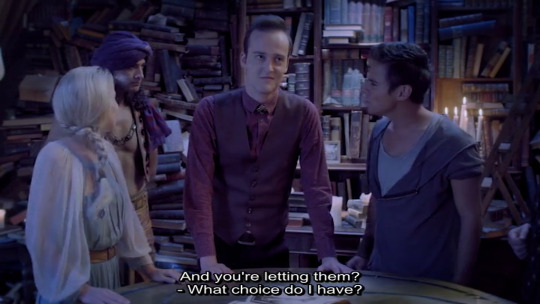
His tendency to see the best in people makes him somewhat vulnerable to manipulation, especially from people close to him (4X10 Reika). This is, however, tempered by his Slytherin secondary.
Supplementary materials tend to describe Vlad as the strategist who has a plan ready to go before they go out to face the monsters. While there is truth in this, it’s not the whole truth: Vlad comes up with plans on the fly and changes them rapidly when the situation demands it. He likes to go out with a plan in mind, true, but he feels no need to stick to that plan. He is a quick thinker even when caught unawares (coming up with a plan right after shaking off brainwashing — 2X6 The Master Vampire). He is versatile and ready to make use of unconventional resources, such as bringing Sacha in the loop when Keelin and Wilko are taken out of commission (1X5 The Siren). On top of that, he has a bit of a manipulative streak if it serves his plans well (2X4 The Domovoi, both in his cheating at the start of the episode and his plan to use Wilko to draw in the monster. Jury’s out on how effective either of those instances were, but he did it anyway.)
Tl;dr: Vlad is a Hufflepuff/Slytherin: he attaches value to people and community, and is willing to give even those he doesn’t know the chances he feels they deserve. He is a versatile planner who can easily improvise and switch plans on the fly, using all resources available to him.
KEELIN
Primary: Ravenclaw
Secondary: Ravenclaw
Ravenclaw Primaries have a constructed system that they test their decisions against before they feel comfortable calling something right. This system might be constructed by them, or it might have been taught to them as children, or it might have been discovered by them some point later in life. But it gives them a way to frame the world and a confidence in their ability to interact with it morally.
Ravenclaw Secondaries plan. They collect information, they strategize. They have tools. They run hypotheticals and try to plan ahead for things that might come up. They build things (of varying degrees of practicality and actual usefulness) that they can use later– whether that’s an emergency supply pack, a vast knowledge of Renaissance artistic techniques and supplies, or a series of lists and contingency plans. They feel less at home in improvisation and more comfortable planning ahead and taking the time to be prepared.
Keelin took by far the most time to pin down. I have my suspicions as to why that is, but that would result in an entirely different essay (with a much higher salt content).
Here’s the thing about Keelin: depending on the episode, she switches viewpoints. Whereas Wilko and Vlad are usually very consistent in what drives them, Keelin will switch from a Hufflepuff’s care for people to a Gryffindor’s concern with what is Right seemingly without rhyme or reason. (It’s mainly those two. She doesn’t emulate Slytherin all that often.)
She is no Slytherin, that’s for sure. I debated Hufflepuff but she does not have the same instinctive concern for people that someone like Vlad (or Sacha, another Puff primary) has. She doesn’t share the steadfast conviction of a Gryffindor. In the end, it is the constructed, thought-out morality of a Ravenclaw primary that shines through.
Supplementary materials tend to describe Keelin as the emotional heart of the team. I… disagree. Strenuously. This may have been how her character was initially conceived, but Keelin doesn’t gravitate towards people, she gravitates towards knowledge, planning, preset rules and the things she’s already learned in the past. There are two examples of this I find most emblematic.
The first is The Time Thief (2X12): when finally breaking free of the time loop that takes up most of the first half of the episode, Keelin’s first instinct… is to plan. It’s to find out what’s going on and who’s behind their problems. Vega has to remind her to find Vlad and Wilko and inform them that something’s wrong.
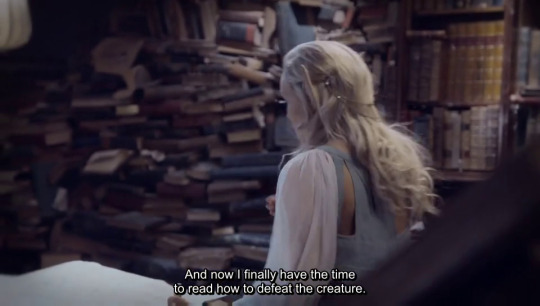

The second occurs in Cerberus, The Gatekeeper (4X5): when Keelin and Wilko get dragged off to be burned at the stake, Wilko begs Keelin to use her magic. Keelin replies as follows (emphasis mine):
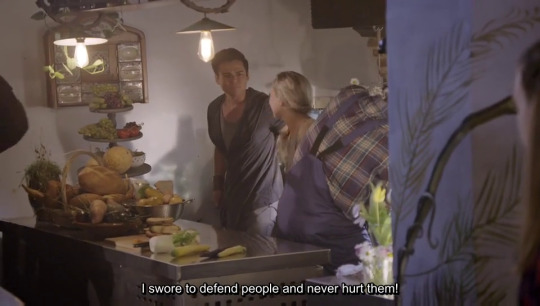
“I can’t! I swore to defend people and never hurt them!” (NL: “Ik kan het niet. Ik heb gezworen mensen te beschermen en hen nooit pijn te doen.”)
It’s not because she doesn’t want to hurt her friends (Slytherin). Not because she doesn’t want to hurt anyone (Hufflepuff). Or because hurting people is wrong (Gryffindor). No, she can’t because she swore an oath, a binding contract. She has built her morality through consideration, by weighing what is good and what isn’t and then sticking to that unless more compelling arguments are presented to her. (What does she accuse Vega of when Vlad needs to quit in the movie? Short-sightedness.)
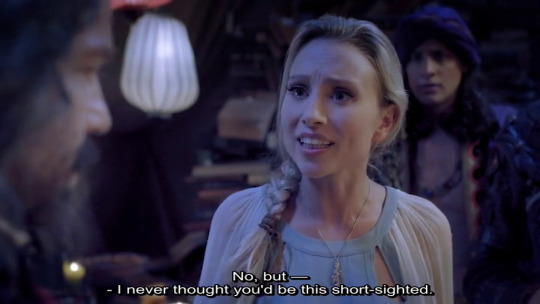
It explains why Keelin seems to switch motivations. I believe she is still very much in the process of constructing her Truth. A number of things she has taken from her upbringing (Black magic is bad, white magic is good — even if the latter is used to hurt people). In daily life she borrows from Vlad’s Hufflepuff most often, but it never comes as naturally to her as it does to him.
Left to her own devices, Keelin falls back on knowledge and things she has previously incorporated as truth, not on people.
Many of those traits bleed into her Ravenclaw secondary. Keelin’s default method of facing a problem is researching it. She collects information. She reads up on potions and spells. She falls back on all the things she’s learned in the past. She wants to have a plan all ready to go before she steps outside and when that plan falls apart, she has a hard time recalibrating (this is what sets apart her Ravenclaw secondary from Vlad’s Slytherin secondary).
Tl;dr: Keelin is a full Ravenclaw: her morality system is constructed and still a work in progress. She tends to draw on Hufflepuff traits when among other people, but left to her own devices she falls back on knowledge.
17 notes
·
View notes